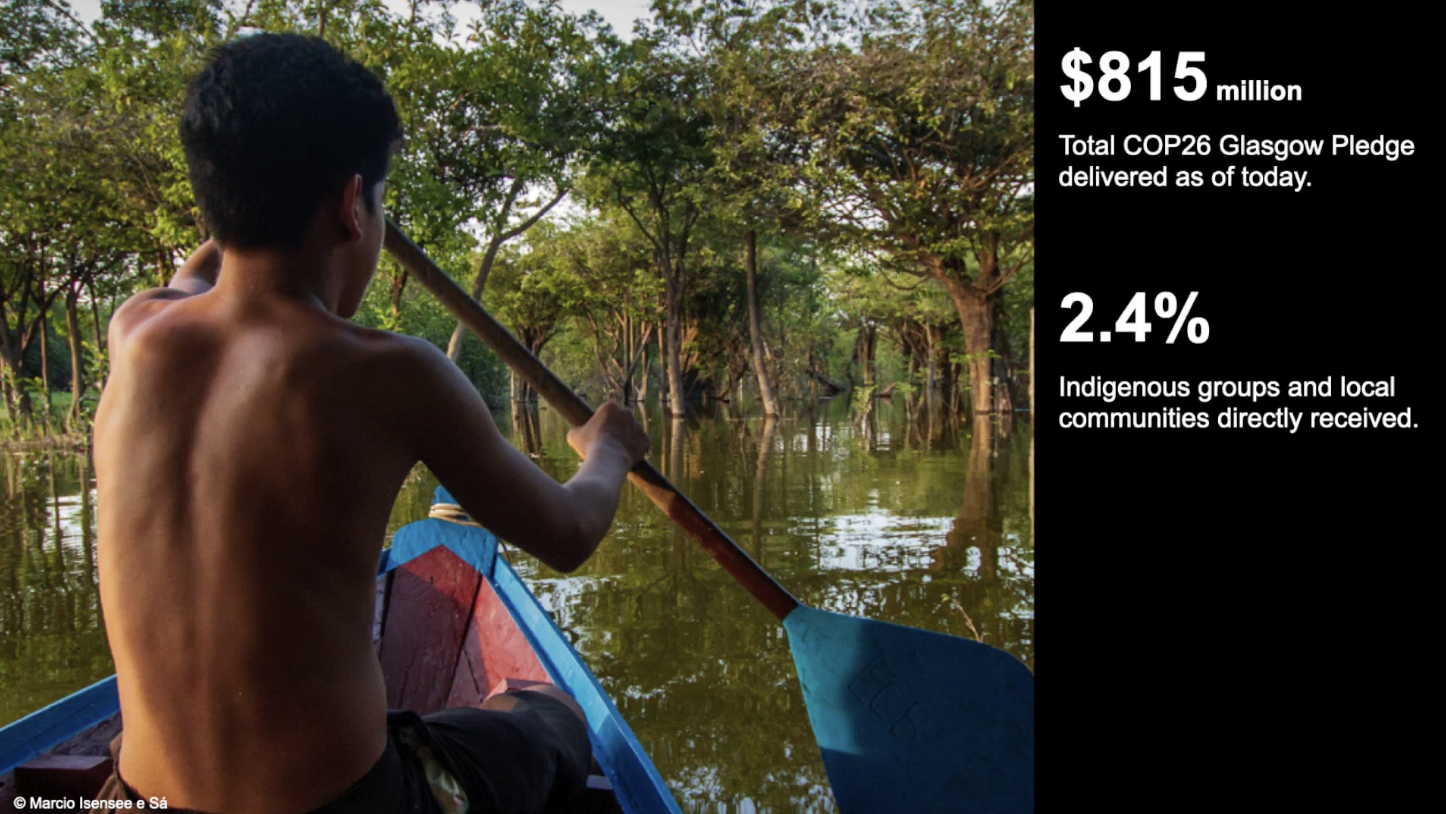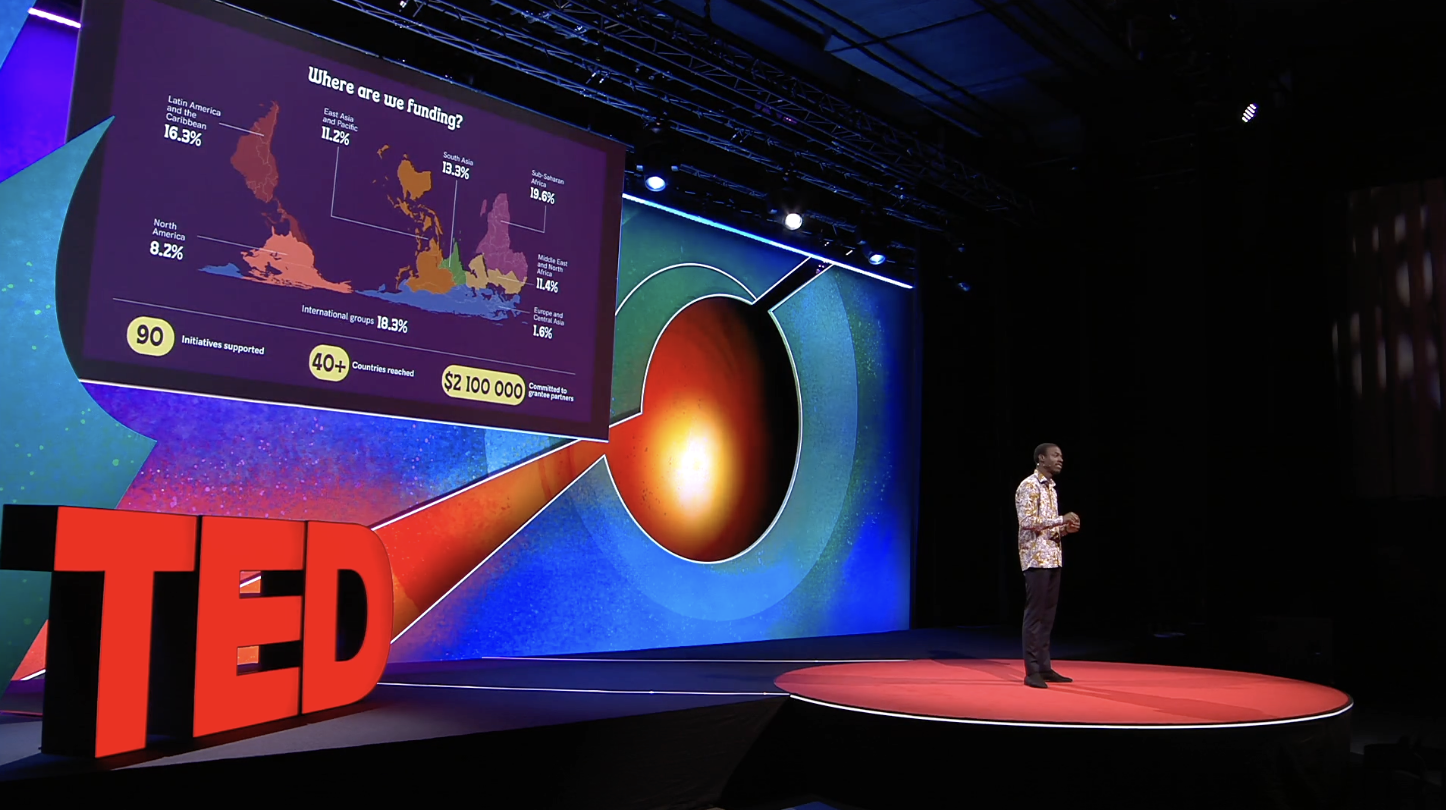Joshua Amponsem, Co-Director of the Youth Climate Justice Fund (YCJF), began his TED talk by reflecting on the disparity he observed in the grant applications received by the YCJF from Africa, where many youth focused on labor-intensive roles like planting trees or collecting waste, while roles like forest data analysts or carbon market experts were rarely pursued. This, he argues, is rooted in the legacy of colonialism, which has limited the perceived roles of African youth in the climate transition to labor rather than leadership.
Supporting Youth Leadership 🌻
Amponsem argued for a bold new vision where young people from the Global South, particularly Africa, take the lead in the climate transition. He emphasized the urgency of this shift: “In regions like Africa, where 70 percent of our population are below the age of 30, there is an urgent need to rethink, refocus and reinvest in their talent.” He challenged the narrative that there is no time to engage local communities, asserting that without investing in the youth, the global climate targets would not be met.
In addressing the systemic funding disparities, Joshua pointed out, “Out of the recent $1.7 billion committed to land rights, only 2.4 percent as of today have gone to Indigenous groups,” reflecting a broader trend of inequality in climate funding. He also criticized the lack of support for young people in the climate sector: “Less than one percent of climate philanthropy goes to young people.” To address this, he highlighted the impactful work of the YCJF, which has committed $2.1 million to support 90 groups across 40 countries, with a strong focus on empowering historically underfunded communities.

Joshua also stressed the importance of inclusive policies to support a just and sustainable transition. “Africa is a leader in this transition. We have the workforce, we have the talent, and we have the knowledge.” The key is ensuring that young people are not just laborers in the climate transition but leaders shaping its future.
*This article is based on and paraphrases content from Joshua Amponsem's TED Talk at TED Countdown: Overcoming Dilemmas in the Green Transition.
